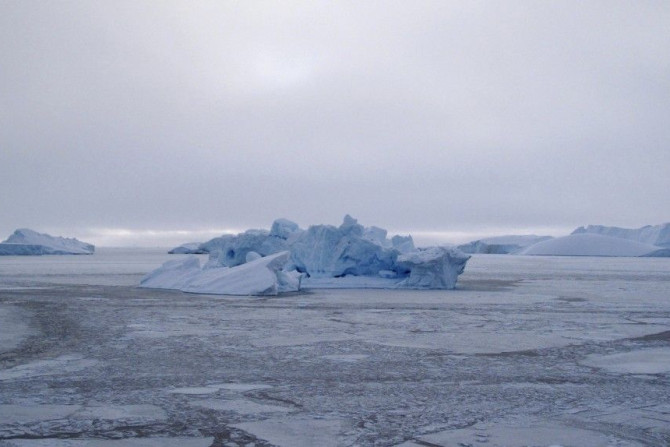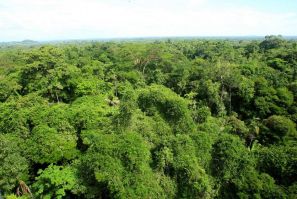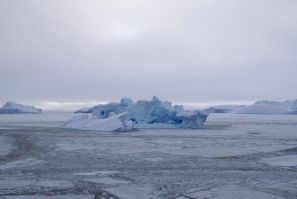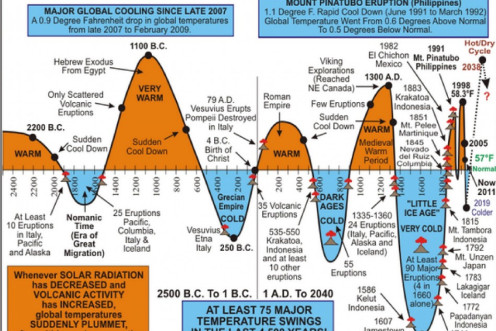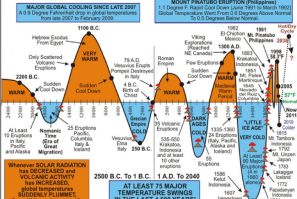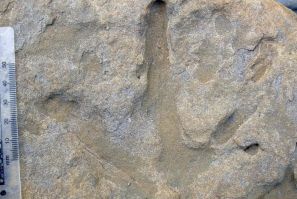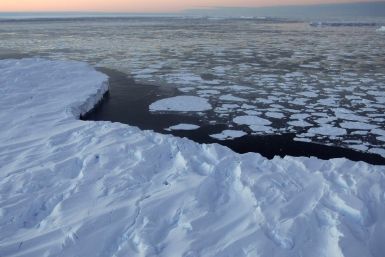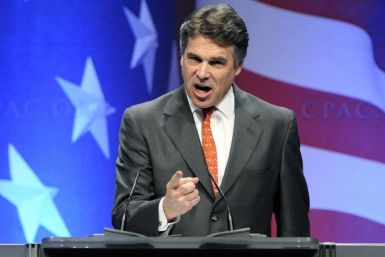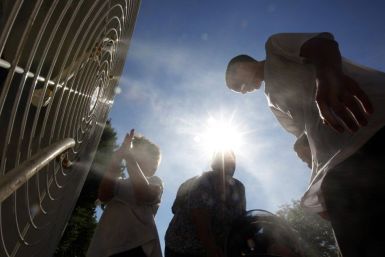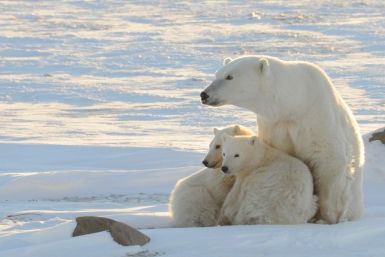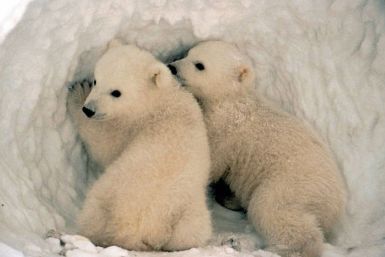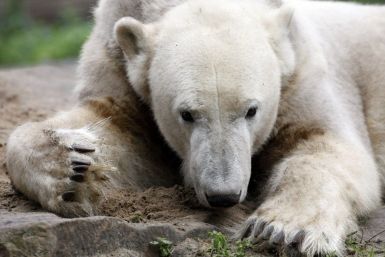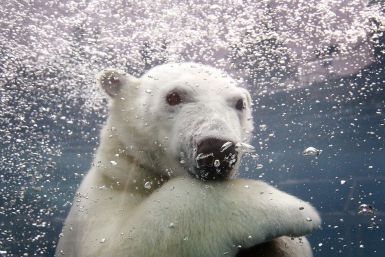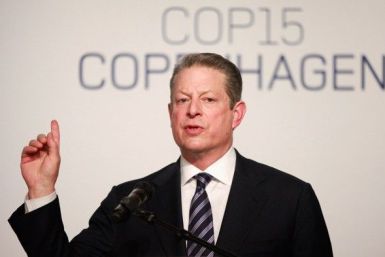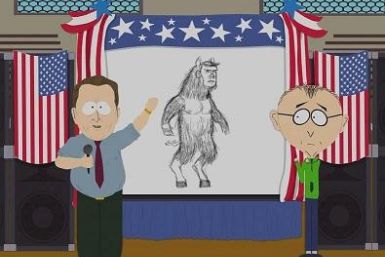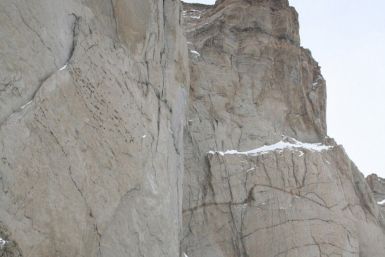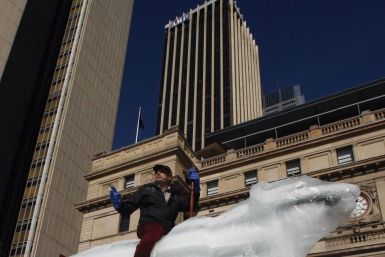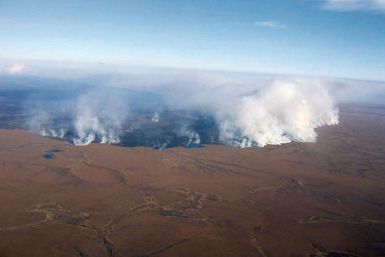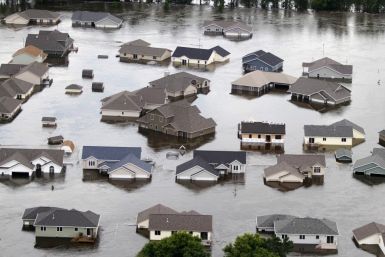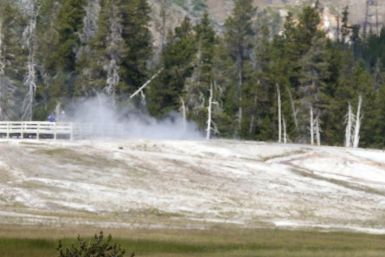Soaring temperatures in July left the amount of Arctic ice at its lowest level on record, continuing a trend of diminishing ice masses that reflects a steady increase in the planet's temperature.
Despite having not yet announced his candidacy, many are seemingly already considering Texas Gov. Rick Perry as the man with the best chance to defeat President Barack Obama in 2012.
Severe heat wave grips US
Carbon dioxide and other air pollution that is collecting in the atmosphere like a thickening blanket, trapping the sun's heat and causing the planet to warm up. Over the past 50 years the average global temperature has increased at the fastest rate in recorded history and experts think the trend is accelerating.
New details emerged Tuesday in the mysterious suspension of acclaimed polar bear scientist Charles Monnett. It appears that his 2006 paper on polar bear deaths is not in question. What is, however, is his management of a current study on "Populations and Sources of Recruitment in Polar Bears."
Facebook has acquired Push Pop Press, a digital publishing platform for e-books, in an effort to expand and update itself in a competitive social media climate.
If polar bears had any clue of the scale of speculation about the extinction threat they are facing due to climate change, they would have probably said "you're kidding, right?"
Acclaimed climate change scientist Charles Monnett has been suspended over "integrity issues" in regards to a 2006 paper on polar bear drownings in the Arctic.
Global warming predictions have followed UN models and trends in describing how Earth traps heat due to carbon dioxide. The increased gases and rising temperatures would create large amounts of water vapors to develop into clouds. Those clouds would trap larger amounts of heat and devastate the planet's ecosystem leading to the end of mankind.
Instead, new information about an issue that recently came about led to Monnett's suspension, a federal official said.
One scientist is disputing the United Nations' numbers on global warming, arguing the numbers aren't as bad as people are saying.
Polar Bear scientist Charles Monnett has been suspended, but reports show that polar bears may still be at risk.
Charles Monnett, a leading climate scientist whose research helped galvanize the global warming movement, has been suspended pending an investigation into his 2006 paper on polar bear drownings.
Global warming proponents can catch up on the sleep they lost worrying about the planet getting hotter with each passing day. A NASA study which analyzes satellite data from the years 2000 through 2011, published in the peer-reviewed science journal Remote Sensing, reports that Earth's atmosphere is allowing far more heat to be released into space than global warming proponents' computer models have predicted.
Melting ice sheets of Greenland have been a cause of concern for researchers and climate change proponents, as previous studies on the ice sheet behaviors projected Greenland's ice less stable when compared to Antarctica's ice. But a recent study by scientists from the University of Wisconsin-Madison, suggests that we may have got it all wrong.
The amount of soil-bound carbon released to atmosphere in the 2007 Anaktuvuk River fire was enough to impact the global climate, according to UF ecologist Michelle Mack and other scientists.
A 2007 wildfire in northern Alaska released as much carbon as the entire Arctic tundra absorbs in one year, scientists said. The Anaktuvuk River fire spanned 400 sq miles and doubled the amount of Alaskan tundra affected by fire since 1950.
A 2007 fire that covered more than 400 square miles of Alaska tundra is providing new clues into the effects that an increase of fires in the Arctic tundra will have on climate change.
In 2007, the Anaktuvuk River fire swept across more than 400 square miles, doubling the cumulative size of Alaskan tundra affected by fire since 1950.
Drastic changes in global climate patterns will pose a dire threat to peace and security around the world, warns the head of the United Nations.
Large fires in Yellowstone National Park could significantly increase due to climate change, drastically altering the park people know today, a new study suggests.
Shrinking sea ice due to global warming could be the cause forcing Polar bears to swim to distant lands looking for favorable denning areas.


